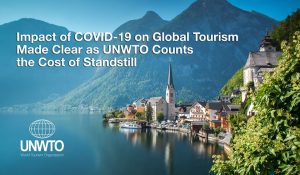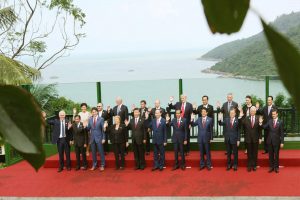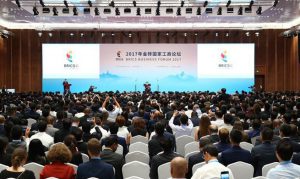ILO launches ‘Toolkit’ to ease tourism
The International Labour Organisation has released a comprehensive training toolkit to promote decent work in the tourism industry and contribute to poverty reduction via the promotion of jobs in rural areas.
Designed as training course, the toolkit is aimed at assisting developing and least-developed countries to create a sustainable tourism industry and businesses based on decent employment.
It is oriented towards SMEs and local communities in rural areas, includes case studies and best practices, and links the ILO Decent Work Agenda, poverty reduction and the UN Millennium Development Goals. Recent developments in tourism and a vision for an inclusive, pro-poor tourism industry are summarised.
According to Alette van Leur, director of the ILO’s Sectoral Activities Department, the importance of tourism for job creation and poverty reduction in rural areas of developing and least-developed countries (LDCs) should not be underestimated. Tourism is increasingly recognised as a major source of economic growth, especially in poor countries.
Its value chain and its significant connections to other sectors such as agriculture, construction, utilities and transport can contribute to poverty reduction.
One job in the core tourism industry indirectly generates 1.5 additional jobs in the related economy.
According to the UN World Tourism Organisation, in 2010 the sector’s global economy accounted for more than 235 million jobs, equivalent to about 8% of the overall number of jobs (direct and indirect), or one in every 12.3 jobs. In 2010, travel and tourism were estimated to have generated about 9.3% of global GDP, while tourism investments were estimated at 9.2% of total global investments.
The ILO’s mission is to promote decent work within the context of poverty reduction. The ILO’s Decent Work Agenda directly relates to poverty reduction through an integrated approach that has four pillars: rights at work, employment, social protection and social dialogue.
Directed at governments, local/rural authorities and community organisations, employers, trade unions and NGOs, the toolkit has five modular chapters which can be used together or independently, according to the training needs of participants and trainers. Some parts can also be used for other purposes (for advocacy, awareness raising and information, and as a background source).
This toolkit was discussed during an international tripartite experts workshop at the ILO’s International Training Centre in August 2011, and incorporates comments from representatives from governments, workers and employers organisations in Bangladesh, Gambia, Laos, Lesotho and Nepal. It also drew upon material from the UNWTO ST-EP Foundation, the ITC and the World Travel & Tourism Council.
According to Wolfgang Weinz, a hotels, catering and tourism (HCT) specialist at the ILO, the HCT sector is one of the fastest-growing economic sectors worldwide. It is very labour-intensive and is a significant source of jobs, especially women, youth, migrant workers and rural populations.
He says: “The HCT sector has significant potential to contribute to poverty alleviation by developing a value chain approach to sustainable tourism development and reducing leakages by building linkages with other sectors.
In addition to the jobs created in the development of infrastructure for tourism, the HCT sector and its informal components provide a vast number of jobs to workers with little or no formal training, and those facing social and skills disadvantages in a way that is not always offered by other industries.
Mr Weinz says: “The sector thrives in an environment where labour-management relations/social dialogue, skills development and decent working conditions are essential for providing quality service and sustainable tourism.
At the same time, however, major improvements are necessary in the working conditions which are frequently characterised as unsocial and irregular, including long working hours, on-call, casual, temporary, seasonal and part-time contracts, which are related to insecurity, comparatively low pay, job instability, limited career opportunities, a high level of subcontracting, substantial outsourcing, and rapid staff turnover.
Numerous ILO reports also cite the fact that unskilled or semi-skilled women tend to work in the most vulnerable jobs, where they are more likely to experience poor working conditions, inequality of opportunity and treatment, violence, exploitation, stress and sexual harassment.
They also suffer segregation in terms of access to education and training. Women are on average paid 25% less than male workers for comparable skills.
According to Mr Weinz, the HCT sectors enterprises often engage in sourcing relationships with foreign suppliers, rather than seeking local supply linkages.
For most developing countries, these leakages in tourism expenditures and earnings are between 40% and 50% of gross tourism earnings and between 10% and 20% for developed and more diverse developing countries.
They can be reduced by building local cross-sectoral activities (i.e. linkages with other sectors such as construction, agriculture, fishing, food processing, furniture manufacturing, handicrafts, media and entertainment, transport, utilities and services including energy and telecommunications).
The toolkit identifies a number of ways to build the requisite linkages via effective national policy strategies and a regulatory framework, public-private partnerships, poverty reduction strategy plans, reduction of imports and promotion of local ownership and supply chains.















